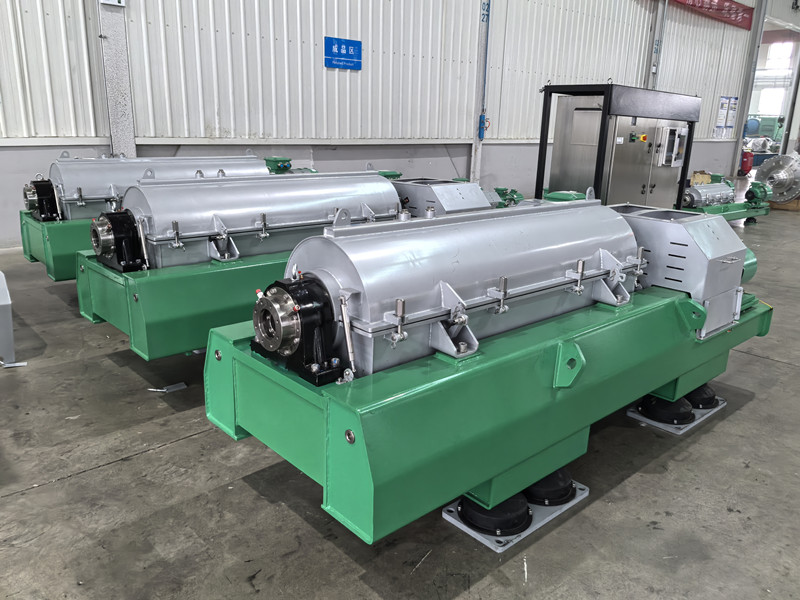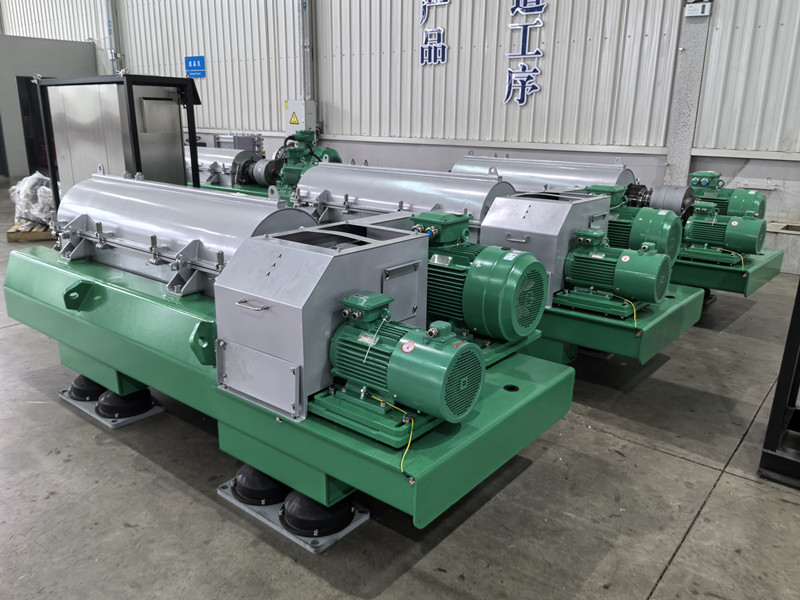Pharmaceutical companies around the world face a common challenge: what to do with their wastewater. This isn’t your typical sewage. This water is complex, often loaded with high concentrations of organic chemicals, leftover antibiotics, solvents, and various solid residues from drug manufacturing. If not treated properly, this wastewater can be toxic to the environment. Traditional biological treatment methods, which rely on microbes to break down waste, often struggle because these very chemicals can kill the helpful microorganisms.
This is where advanced physical separation technology comes in, and the GNLW364 Decanter Centrifuge from GuanNeng is proving to be an ideal solution for overseas pharmaceutical plants.
Think of it as a super-powered spin-dryer. Its core job is to separate solids from liquids continuously and efficiently. The wastewater is fed into a high-speed rotating drum. Due to the powerful centrifugal force generated—thousands of times stronger than gravity—the heavier solid particles are flung against the walls of the drum. A built-in scroll (like a screw) slowly pushes these separated solids towards one end for discharge, while the now-cleaned liquid flows out the other end.
- Built to Last Against Corrosion: Pharmaceutical wastewater can be highly corrosive, containing acids, alkalis, and solvents. The GNLW364 is constructed with premium Duplex Stainless Steel 2205 for all parts that touch the liquid. This material is exceptionally resistant to rust and chemical attack, ensuring the machine has a long life and requires less maintenance, even in harsh conditions. This durability is a key concern for overseas plants looking for reliable, long-term equipment.
- Smart Design for Maximum Dryness: A key feature is its optimized “beach angle” design. This might sound technical, but it simply means the shape of the drum is perfected to allow solids to be pressed and drained for a longer time before being pushed out. The result? The separated sludge is much drier (often with a water content below 75%), making it easier and cheaper to dispose of. The cleaned water, on the other hand, is much clearer, with over 90% of solids removed.
- Adaptable to Changing Conditions: Pharmaceutical production batches can vary, meaning the wastewater composition changes too. The GNLW364 is smart enough to handle this. Its advanced control system allows operators to fine-tune the rotation speed of the drum and the speed of the internal scroll. This adjustability means the centrifuge can be optimized in real-time to handle different types of sludge, whether it’s thick organic waste, fine crystal particles, or other solids.
- Works Well with Treatment Chemicals: Often, special chemicals (called flocculants) are added to the wastewater to make tiny particles clump together into larger chunks, making them easier to separate. The GNLW364 is designed to work seamlessly with these dosing systems, boosting its efficiency in capturing even the finest particles that would otherwise be impossible to remove.
Benefits for an Overseas Pharmaceutical Plant
By installing a GNLW364 centrifuge as a primary treatment step, a pharmaceutical plant can achieve several critical goals:
- Protects Downstream Systems: By removing most of the solids and toxic materials upfront, it protects the delicate biological treatment stages that might follow, preventing microbial poisoning and ensuring the whole system runs smoothly.
- Meets Strict Regulations: It helps plants consistently meet the tough environmental discharge standards set by countries in Europe, North America, and other regions.
- Reduces Overall Costs: Producing drier sludge means lower waste disposal volumes and costs. The machine’s reliability and low maintenance needs also contribute to a lower total cost of ownership.
- Supports Sustainability: It enables efficient waste reduction and water recycling, aligning with modern green manufacturing principles.
In summary, treating pharmaceutical wastewater is a difficult but essential task. The GN GNLW364 Decanter Centrifuge offers a robust, efficient, and intelligent solution. Its strong construction, high separation efficiency, and operational flexibility make it a trusted partner for pharmaceutical companies worldwide in their mission to operate responsibly and protect the environment. It’s a great example of how targeted engineering can solve complex industrial challenges.

